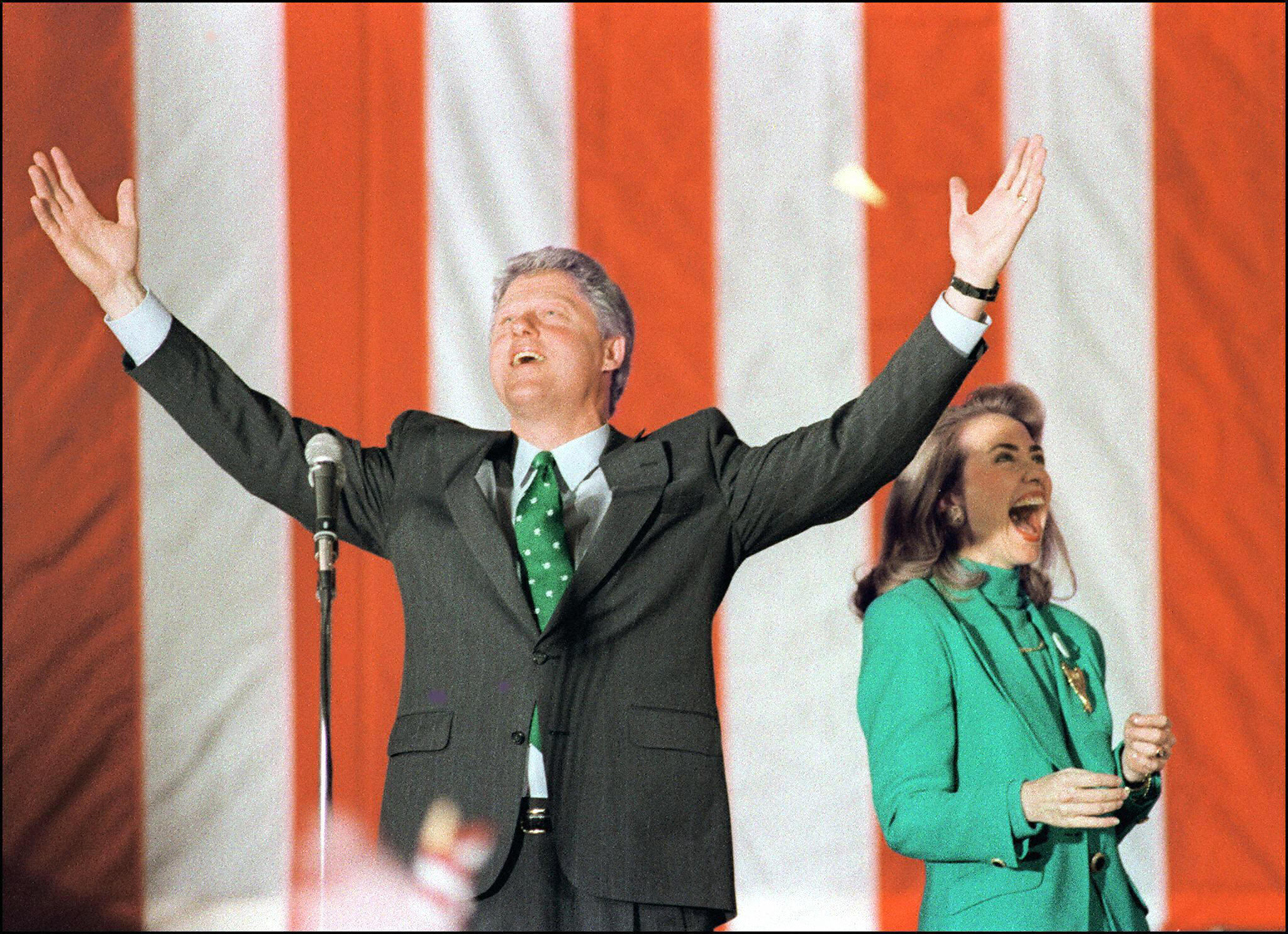Hillary loves the '90s! But she can't bring them back.
Hillary wants Bill to "bring back the kind of economy that worked for everybody in the 1990s." Sorry, but he can't.


A free daily email with the biggest news stories of the day – and the best features from TheWeek.com
You are now subscribed
Your newsletter sign-up was successful
Bill Clinton didn't create the 1990s economic boom when he was this nation's 42nd president. So how could he bring it back as America's first "first gentleman"?
He can't. But Hillary Clinton really wants voters to think he can. The likely Democratic presidential nominee is now telling audiences that she's going to put her hubby "in charge of revitalizing the economy… to help bring back the kind of economy that worked for everybody in the 1990s."
If a president were going to have an "economy czar" — of course, most people probably think that's actually the president's main job — Bill Clinton sure seems like a reasonable non-economist pick. The 1990s was a pretty great decade, after all. Arguably the greatest ever in American history. Economic growth roared ahead at 4 percent a year during the Clinton presidency. The economy added 24 million new jobs. And Hillary Clinton is correct: It was a time of shared prosperity. A recent Brookings analysis looked at how the middle class has fared during the past five presidencies and found "the largest average annual gains in median household income occurred during the Clinton and Reagan administrations, with a clear edge to Clinton."
The Week
Escape your echo chamber. Get the facts behind the news, plus analysis from multiple perspectives.

Sign up for The Week's Free Newsletters
From our morning news briefing to a weekly Good News Newsletter, get the best of The Week delivered directly to your inbox.
From our morning news briefing to a weekly Good News Newsletter, get the best of The Week delivered directly to your inbox.
We can surely all agree: The '90s were a great decade, even if they did include the first Star Wars prequel.
Still, there are some obvious problems with Bill acting as Hillary's economic guru.
First, why should voters believe Bill possesses some pro-growth pixie dust to sprinkle on our slow-growth New Normal? There was a lot more happening in the 1990s than just Clintonomics. The U.S. economy entered the decade after undergoing a radical reworking in the 1980s, the effects of which took time to play out fully. Tax rates were dramatically lowered, the Federal Reserve finally whipped the 1970s inflation menace, and corporate America underwent a massive restructuring through myriad mergers and acquisitions. Oil prices collapsed. Good luck teasing out cause and effect.
But perhaps nothing is more emblematic of the 1990s than the technology boom, when the personal computer married the internet — both of which were invented earlier, of course. The computer and networking revolution contributed to a big surge in private investment, which greatly boosted economic growth. And to be fair, Clinton's action probably helped, too, by allowing the internet's commercialization and leaving it unregulated.
A free daily email with the biggest news stories of the day – and the best features from TheWeek.com
The point, however, is that even though presidents get credit for the good and blame for the bad that happens on their watch, it's never straightforward to figure out how much they deserve, if any.
So what would Bill do exactly? Hillary already has a comprehensive and detailed economic agenda — taxes, infrastructure, early childhood education — certainly far more so than the presumptive Republican nominee, Donald Trump.
Even assuming Bill has some fresh ideas to offer, what would they be? There were multiple versions of Clintonomics. Presidential candidate Bill Clinton campaigned on a populist "putting people first" agenda of middle-class tax cuts, universal healthcare, and education reform. But as president, he eventually became — in his own words — an "Eisenhower Republican" who tried to boost economic growth by cutting the deficit and lowering interest rates. (The current group of House Republicans would be proud.) And when Republicans captured Congress in 1994, Clintonomics morphed again. The president who raised income taxes on the rich in his first term cut their investment taxes in his second, and deregulated Wall Street. Economist Arthur Laffer, the godfather of President Ronald Reagan's 1980s free-market reforms, jokes that Clinton "became more Reagan than Reagan."
Which leads to the third problem, a political one: The 1990s have been undergoing a reevaluation, partially due to progressives like Bernie Sanders who never cared for Clinton's third way centrism. And the post-2000 economy has hardly been a legacy builder for Clintonomics. The internet boom, after all, was followed by a bust. And that bust was followed by a housing boom and bust and horrific recession — all of which some blame on Clinton's financial deregulation. High-end income inequality rose sharply during the Clinton years. And populists on the left and right have attacked Clinton's push for the North American Free Trade Agreement and China's entry into the World Trade Organization. They see Clintonomics as a job killer for the working class.
Assuming voters have a clear memory and opinion of the 1990s, it may be far less rosy today than it was in 2000. Even if they believe Bill and Hillary can build a bridge back there, many might not want to go.
James Pethokoukis is the DeWitt Wallace Fellow at the American Enterprise Institute where he runs the AEIdeas blog. He has also written for The New York Times, National Review, Commentary, The Weekly Standard, and other places.
